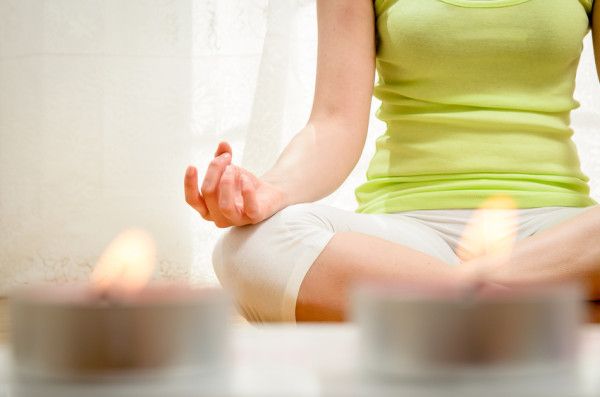When it comes to productivity, stress is one of the biggest obstacles to overcome. If we're not managing our stress levels effectively, it can have a negative impact on all areas of life, including our work performance. While there are many ways you can relieve stress and improve your overall well-being, one of the easiest and most effective relaxation techniques is meditation. Let’s dive into some easy, effective relaxation exercises.
Meditate.
Meditation has been scientifically proven to reduce stress, improve focus and concentration, and even increase your lifespan. The practice involves focusing on one thing (such as your breathing) without letting other thoughts distract you. It sounds simple, but it can be difficult to master—especially if you've never tried it before! Start by setting aside 15 minutes a day for meditation and see how it feels over time. You may find that your mind is too busy to spend time sitting still for long periods of time; if so, try meditating in short spurts throughout the day instead of just once a day at a set time. Even if you're not able to focus fully on the present moment during each session, practicing this skill will help prepare you for longer sessions later on down the line when those moments do arise.
Try a warming breath exercise.
A warming breath exercise will help you relax your mind and body. This is because breathing exercises can release tension and help you feel less stressed.
The best way to do a warming breath exercise is by taking a deep breath in through your nose, filling the bottom of your lungs with air, holding the air in for several seconds, and then slowly exhaling through pursed lips (not like you're blowing out a candle). You can also choose to breathe out through slightly parted teeth instead of pursed lips if that feels more comfortable for you. Be sure to keep track of how long each inhale/exhale cycle takes so that you know when it's time for another one!
If done correctly, this type of deep breathing can help relax your mind and relieve tension by activating areas in our brain associated with relaxation response (which helps us feel calm).
Get your body moving.
You can get your body moving in whatever way helps your mental health and supports your physical abilities. Some ideas:
- Go for a walk.
- Try yoga.
- Take a dance class (or try a YouTube .
- Run, swim, bike—you name it!
It's important to remember that exercise can help you relax in more ways than one: Not only will it make you feel better physically and mentally, but studies have found that regular physical activity also reduces stress and anxiety, improves sleep quality and moods, boosts energy levels and self-esteem, increases your confidence in dealing with stressful situations at work or home, and reduces the risk of depression.
You don't have to be an Olympic athlete or marathoner; just moving your body for at least 30 minutes most days of the week will help tremendously! As a bonus, getting moving more frequently will also help regulate your stress hormones, reduce blood pressure, and provide much-needed stress relief.
Take a short walk outside.
Walking outdoors can be a great way to relax in your everyday life. Walking outside is good for the body and mind, but it’s also a natural way to calm down. You might try taking a short walk around your neighborhood or park.
Walking in nature is especially helpful because it can engage both sides of your brain—the left and right hemispheres—which will help you switch off from stress and anxiety, plus calm a busy mind.
Another way to use this activity as an effective relaxation technique is by listening to music you love while walking. The addition of music alone can help improve your mood, which will also help you relieve anxiety.
Practice grounding techniques.
Grounding exercises can be a powerful way to relax and ground yourself in the moment. You can do grounding exercises by focusing on your surroundings, including the sounds around you and any physical sensations that are present.
For example, head outside, take your footwear off and stand barefoot on the earth, noticing how everything feels as you do so. If possible, go deeper into nature and try observing different plants or animals around you—you'll feel calmer from being outdoors in the fresh air!
Another way to ground yourself is by focusing on one part of your body at a time through an exercise called progressive muscle relaxation. Start with your feet and notice how they're planted firmly on the ground. Move up through each part of your body (feet, legs, torso) until reaching the top of head; once at this point, focus all attention on your scalp feeling relaxed before moving downward again through each section until reaching back into toes again, where they will feel grounded once more. By focusing on one muscle group at a time and mindfully releasing tension, your brain has something to do: help you ease muscle tension.
Listen to calming music.
Calm your mind and relax with music. What you listen to can affect your mood, so choose calming tunes that will help lower your stress levels and circulate more endorphins through your body.
Try binaural beats, solfeggio frequencies, nature sounds or meditation music that has a relaxing effect on the body and mind. Avoid listening to music with lyrics when attempting to quiet your mind, as the song can interfere with your ability to relax.
And watch the volume. Sometimes this can cause stress in itself!
Practice deep breathing exercises.
Deep breaths help you relax your muscles, reduce stress, improve your mood, and even fall asleep. Here's how to do them:
- Inhale slowly through the nose for five seconds, then hold the breath for two seconds before exhaling slowly through the mouth for seven seconds. Repeat this cycle of deep breaths three times.
- Or try box breathing: Inhale for four counts; hold on full for four counts; exhale for four counts; and then hold empty for another four counts before starting again at one (inhale).
Try deep breaths before your next progressive muscle relaxation or guided meditation, and see if it's easier to relax your mind.
Be aware of what you're feeling.
If you notice your mind wandering or spinning on a certain topic, use it as a signal to explore the underlying feelings instead of numb them or push them down.
Some ways to relax without bypassing the core feelings:
- Recognize the feeling.
- Don't judge it.
- Don't try to change it, just be aware of it and let it be.
- Don't push the feelings away by distracting yourself with something else or trying to think about other things.
Relaxing your mind can help you feel calmer, happier, and more productive
So often, we're spending time on more rather than less. Stress management is an inevitable skill to master for optimal health and wellbeing.
If you need more active relaxation options, consider taking up yoga, tai chi, or other rhythmic activities that reduce stress levels through physical activity. These kinds of activities have been shown time and again to reduce anxiety levels by lowering cortisol levels—the hormone associated with stress—and boosting endorphins—the brain's "feel good" chemicals.
Incorporate one or more tips from the above suggestions into your daily life for a few weeks, and track your mental health along the way. We bet you'll feel rested, recharged, and inspired afterward!









